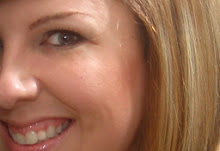
The February Book
The Omnivore's Dilemma, by Michael Pollan
Meeting Date
Saturday, 28 February 2009
1000a at Whole Foods
Sand Lake and I-4
Brunch will be served!
About the Book
Pollan (The Botany of Desire) examines what he calls "our national eating disorder" (the Atkins craze, the precipitous rise in obesity) in this remarkablyclearheaded book. It's a fascinating journey up and down the food chain, one that might change the way you read the label on a frozen dinner, dig into a steak or decide whether to buy organic eggs. You'll certainly never look at a Chicken McNugget the same way again.Pollan approaches his mission not as an activist but as a naturalist: "The way we eat represents our most profound engagement with the natural world." All food, he points out, originates with plants, animals and fungi. "[E]ven the deathless Twinkie is constructed out of... well, precisely what I don't know offhand, but ultimately some sort of formerly living creature, i.e., a species. We haven't yet begun to synthesize our foods from petroleum, at least not directly."Pollan's narrative strategy is simple: he traces four meals back to their ur-species. He starts with a McDonald's lunch, which he and his family gobble up in their car. Surprise: the origin of this meal is a cornfield in Iowa. Corn feeds the steer that turns into the burgers, becomes the oil that cooks the fries and the syrup that sweetens the shakes and the sodas, and makes up 13 of the 38 ingredients (yikes) in the Chicken McNuggets.Indeed, one of the many eye-openers in the book is the prevalence of corn in the American diet; of the 45,000 items in a supermarket, more than a quarter contain corn. Pollan meditates on the freakishly protean nature of the corn plant and looks at how the food industry has exploited it, to the detriment of everyone from farmers to fat-and-getting-fatter Americans. Besides Stephen King, few other writers have made a corn field seem so sinister.Later, Pollan prepares a dinner with items from Whole Foods, investigating the flaws in the world of "big organic"; cooks a meal with ingredients from a small, utopian Virginia farm; and assembles a feast from things he's foraged and hunted.
Discussion Questions
(taken from sierraclub.com)
- Which of the four meals Pollan describes--fast food, industrial organic, "beyond organic," or entirely self-made--is closest to what you normally eat? Did you learn anything about how it's made that surprised you? Will you make any changes in your eating habits as a result?
- "If nature won't draw a line around human appetites, then human culture must step in," Pollan writes. Are there certain foods you won't eat for moral, philosophical, or environmental reasons? If so, when and why did you decide to stop eating them?
- Pollan believes that Americans are particularly subject to food fads and anxieties because we have "no strong, stable culinary tradition to guide us." What are your family or community traditions, if any, and how do they (or the lack of them) affect your relationship with food?
- Have you ever grown, fished, or hunted your own food? How does the experience of eating it compare to eating something from a grocery store or restaurant?
- Pollan writes that the pleasures of eating are "deepened by knowing." Do you agree, or are there some things you'd rather not know about your food?
- "Even if the vegetarian is a more highly evolved human being," Pollan writes, "it seems to me he has lost something along the way"--namely, his or her links to cultural and family traditions, history, and biology. What do you think?
- "Eating's not a bad way to get to know a place," Pollan writes. Describe a meal that deepened your understanding of a location you lived in or visited.
- "Is an industrial organic food chain finally a contradiction in terms?" Pollan asks, deciding that it is. Do you agree?

